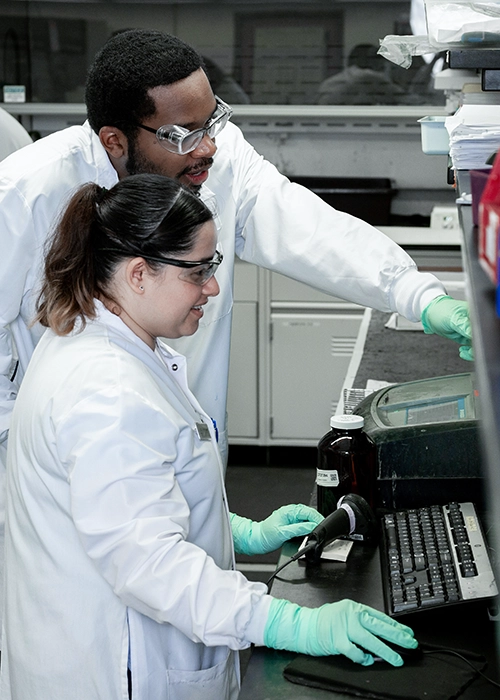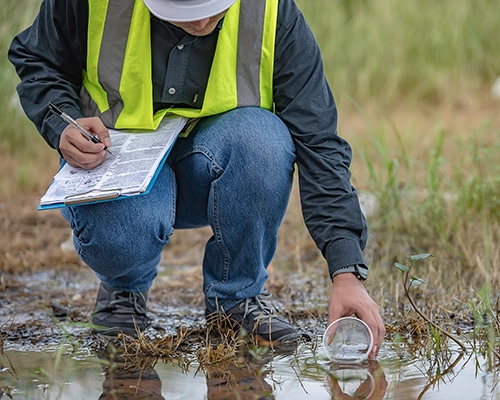Mitigating Risks And Protecting The Environment
Pace® provides Total Petroleum Hydrocarbon (TPH) testing and TPH forensic analysis of soil, water, and air through our nationwide network of environmental labs. We’re NELAC and DOD certified, as well as certified in every state that offers a lab accreditation program for petroleum analysis. Our experienced team of scientists routinely gets involved in a wide range of projects, including:

What Is TPH Testing?
Total Petroleum Hydrocarbons (TPH) refers to a vast group of organic compounds commonly found in crude oil and its various refined products, such as gasoline, diesel, and lubricating oils. Petroleum hydrocarbons can be present in the environment due to natural occurrences, industrial activities, or accidental spills. TPH Testing analyzes the total petroleum hydrocarbons present in a sample, such as soil, sediment, water, or air. It is often an essential component of compliance, risk assessment, and risk mitigation for a wide range of Pace® customers. Here are some of the most common types of projects we support with TPH analysis services:
Who We Serve
The TPH content of natural gas may be measured using analytical methods similar to those used for crude oil.
TPH analysis can help monitor and manage hydrocarbon contamination at industrial sites, such as refineries, petrochemical plants, and fuel storage facilities.
TPH contamination from leaks in Underground Storage Tanks (USTs) can lead to soil and groundwater contamination. The U.S. Environmental Protection Agency (EPA) has implemented regulations for UST systems storing petroleum products to prevent releases and clean up contaminated sites.
Regular testing enables companies to identify potential leaks, spills, or other sources of contamination, ensuring compliance with environmental regulations and minimizing the risk of costly cleanups and penalties.
Pace® provides testing services for environmental consulting projects, such as environmental site assessments for brownfield properties where identifying and quantifying TPH contamination is necessary for determining the appropriate cleanup measures.


How Are Hydrocarbons In Soil And Water Regulated?
TPH levels in groundwater and surface water are regulated under the Clean Water Act (CWA) and in air through the Clean Air Act (CAA). These acts address petroleum pollution prevention and spill response in addition to TPH in wastewater and stormwater under the National Pollutant Discharge Elimination System (NPDES).
The Comprehensive Environmental, Response, Compensation, and Liability Act (CERCLA) and the Resource Conservation and Recovery Act (RCRA) list certain wastes containing designated TPH compounds and petroleum-related industrial wastes as hazardous. In addition, some states have set their own regulations regarding TPH in soil, water, and air.
Choose Pace® For Your Next Project
By leveraging our experience, advanced analytical techniques, and cutting-edge instrumentation, you can make better informed decisions using data that is accurate, reliable, and defensible. Our comprehensive service offerings, including project planning, sampling, and data interpretation, make Pace® the go-to resource for clients seeking to comply with environmental regulations or assess and mitigate the impacts of petroleum contaminants on the environment and human health.
Additional Resources
Need to find a lab that can handle your unique requirements?
Contact us directly or download our list of environmental certifications across our network.